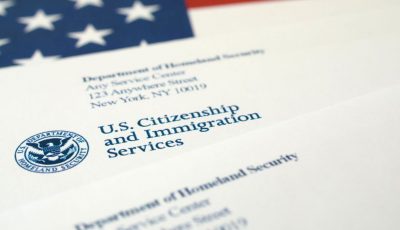Dynasty owner’s lawsuit against USCIS, officials dismissed
Citing the federal court’s lack of jurisdiction, U.S. District Court for the NMI Chief Judge Ramona V. Manglona dismissed on Sunday the lawsuit filed by the owner of the now-defunct Tinian Dynasty Hotel & Casino against the U.S. Citizenship and Immigration Services, U.S. Department of Homeland Security acting Secretary Elaine Duke, and USCIS acting director James McCament over the denial of its petitions for CW-1 extension and transfer for its foreign workers.
In a 14-page ruling, Manglona said because the period in which plaintiff Hong Kong Entertainment (Overseas) Investments Ltd. petitioned for CW-1 permits for beneficiaries has expired, the court cannot provide a remedy for the alleged injury of workforce deprivation, HKE therefore lacks standing.
In dismissing the case with prejudice, Manglona said because no amendment could cure the jurisdictional defect, allowing HKE to amend the lawsuit would be futile.
The judge directed the court’s clerk to close the case and enter judgment in favor of defendants USCIS, Duke, and McCament.
As official-capacity defendants, Duke and McCament have been automatically substituted for the original defendants—former DHS Secretary Jeh Johnson and former USCIS director Leon Rodriguez, respectively.
Defendants USCIS, Duke, and McCament, through counsel, asserted that the court lacks subject matter jurisdiction because HKE does not have standing to sue.
Manglona said to establish standing, plaintiffs must show that they have suffered an injury in fact, a sufficient “causal connection between the injury and the conduct complained of,” and a likelihood that the injury will be redressed by a favorable decision.
Defendants argued that HKE’s allege injuries are not redressible because the one-year time period that the CW-1 petitions covered has already expired.
HKE has never reapplied for CW-1 permits for these workers or petitioned to extend them.
Therefore, according to defendants, HKE has not carried its burden to show that a favorable judgment would redress an ongoing injury or a threat of an imminent future injury.
HKE responded that USCIS’ action injured it in two ways, by sullying its reputation and by depriving it of much of its workforce, and that both these injuries are redressible by favorable judicial action.
Manglona said HKE’s claims as to damage because of the denials of their petitions are moot because the time period to which the petitions applied expired long ago.
Manglona said HKE asserts that, “the decisions designating HKE’s hotel and casino operation as an illegitimate business have not expired and have not been retracted by USCIS.”
Manglona said the issue at this stage of the analysis, however, is not whether the decisions have been vacated or “retracted” but whether the benefits period has expired.
“It has,” the judge pointed out.
Manglona said the determination that HKE was not a legitimate business is limited to the individual case and does not carry over to future petitions HKE may file.
Manglona said the alleged reputational harm to HKE is truly a “byproduct” and not a direct result of USCIS action.
The judge said USCIS did not reach out on its own and declare HKE an illegitimate business.
Rather, she said, it followed regulations to determine whether HKE was an eligible employer engaged in legitimate business.
HKE has blamed USCIS’ stigmatizing the company by designating it as an “illegitimate business” to the deprivation of its foreign workforce that led to the eventual closure of Tinian Dynasty.
HKE counsel George Anthony Long asserted that the stigma prejudiced HKE by severely interfering with the company’s ability to operate its hotel and casino.
In defendants’ reply to HKE’s opposition to the motion to dismiss, U.S. Department of Justice Office of Immigration Litigation trial attorney Heather Sokolower denied that USCIS designate HKE “as an illegitimate business” or ever refer to HKE as an “illegitimate business.”
Sokolower said HKE mischaracterizes the agency actions at issue in this case.
According to HKE’s lawsuit, the final USCIS Administrative Appeals Office’s adverse agency decision affirming that the company is not engaged in a legitimate business for CW purposes affects more than three quarters of Tinian Dynasty’s employees.
HKE claimed it has harmed by the agency decision as it materially affects its ability to maintain and continue its business operations. Tinian Dynasty used to employ about 500 foreign contract workers.
Defendants then moved to dismiss the lawsuit for lack of standing and failure to state a claim.



























